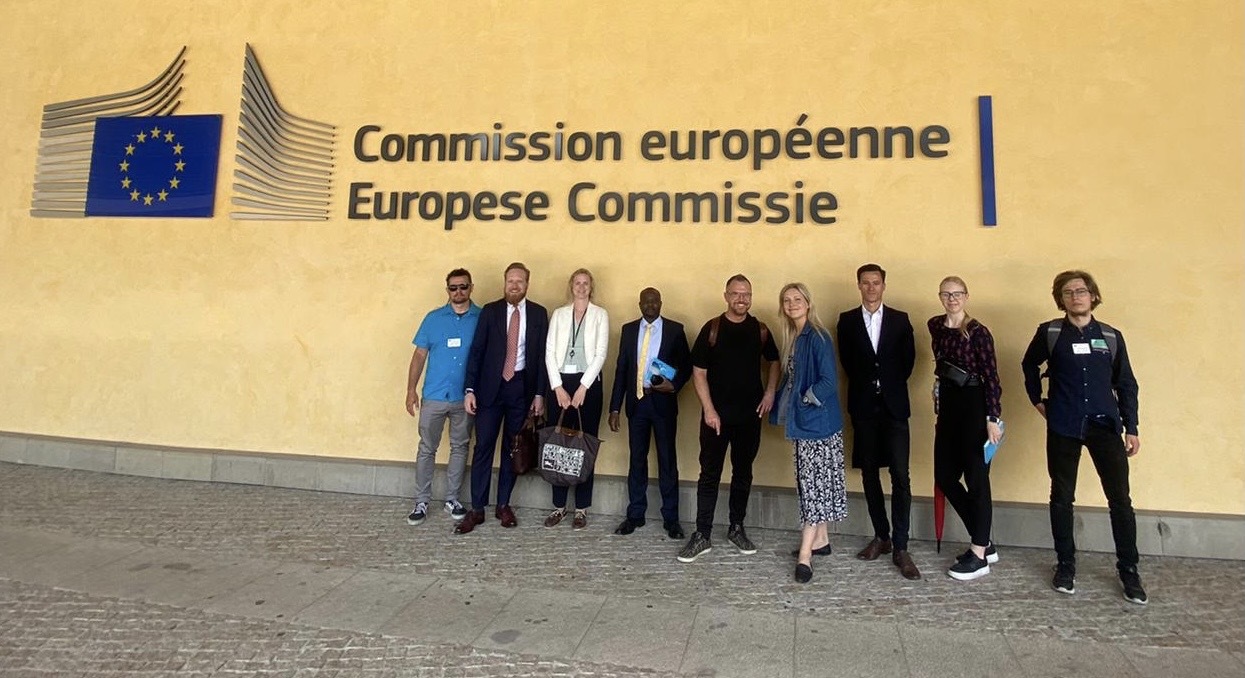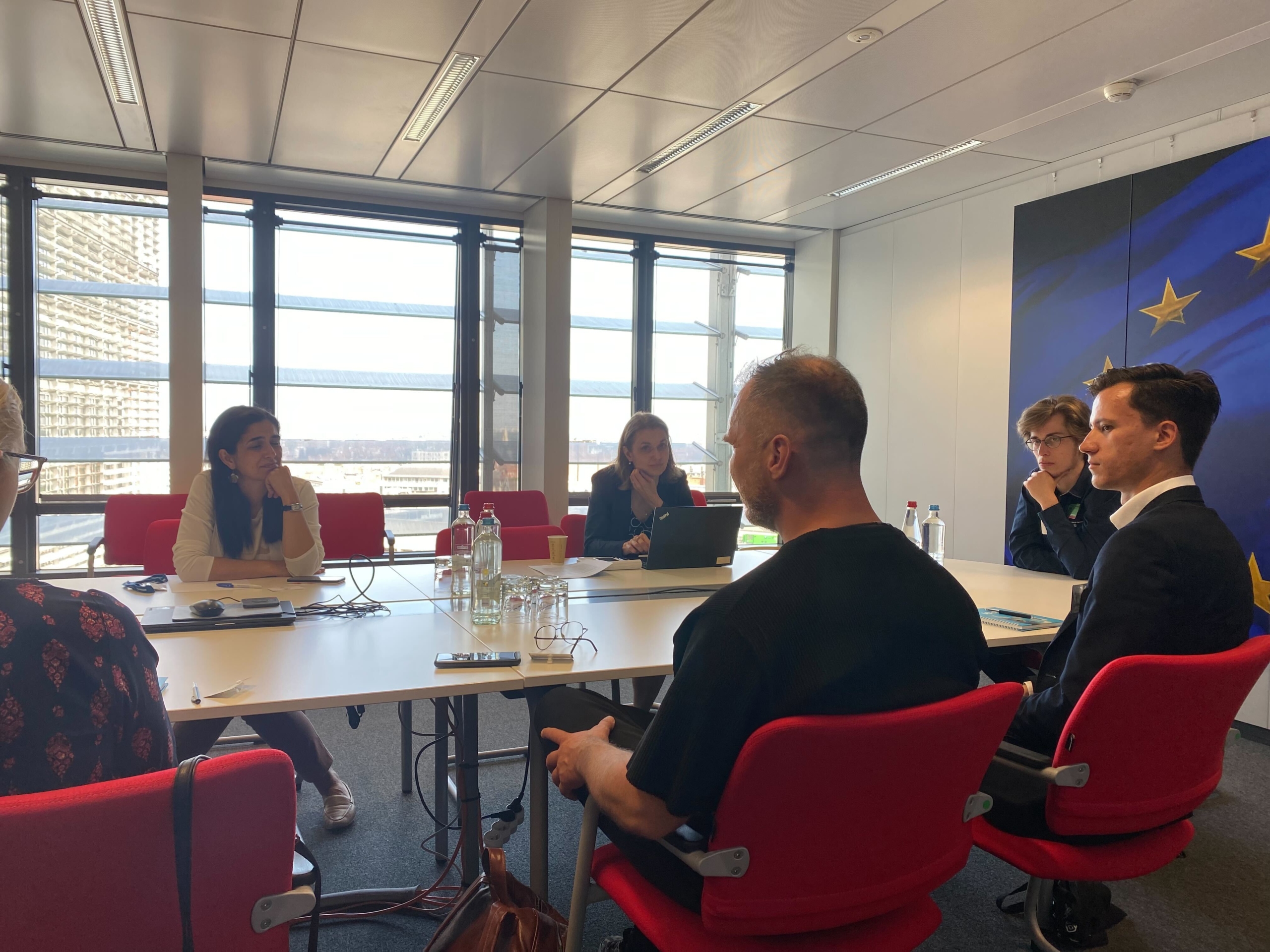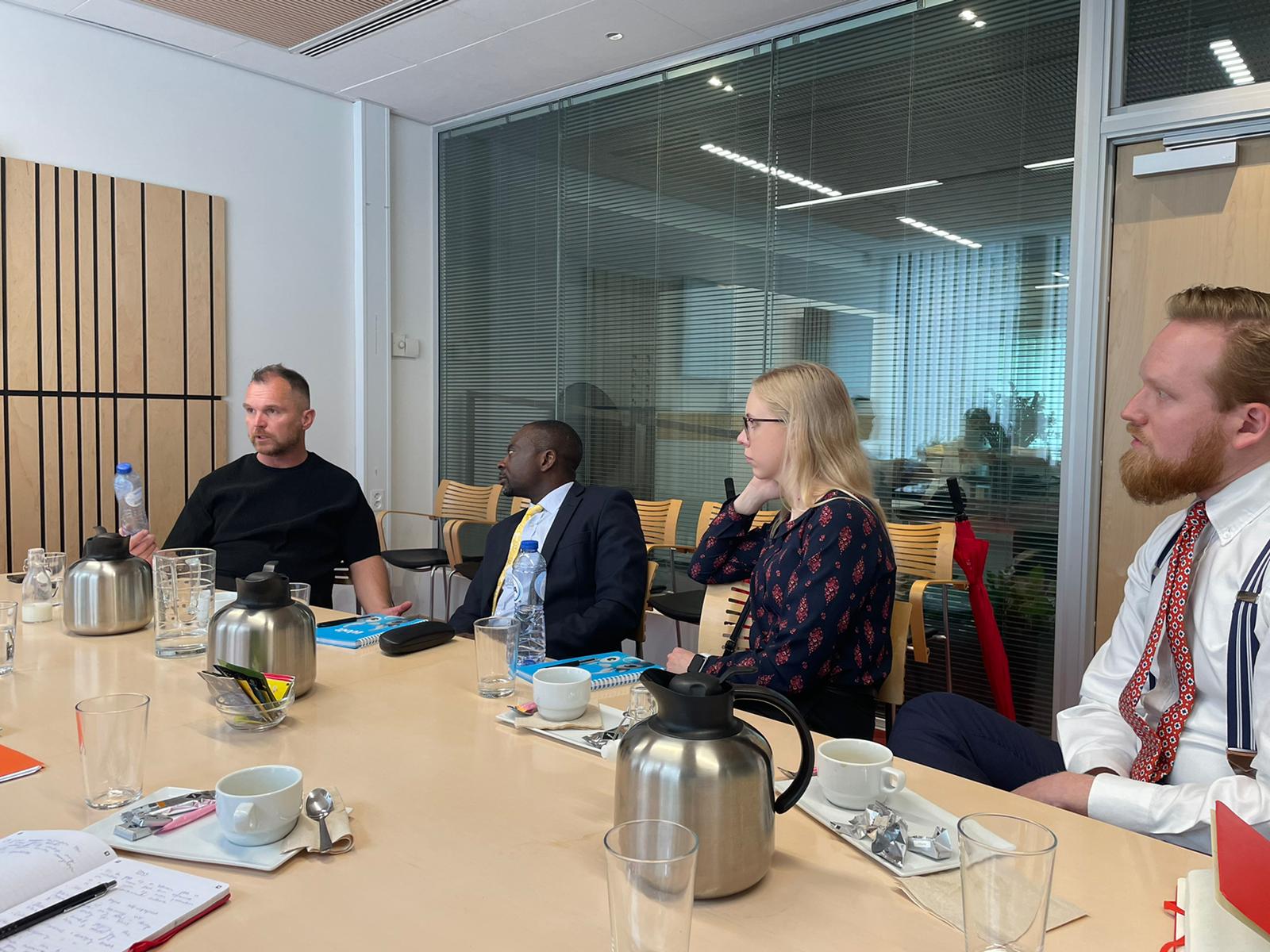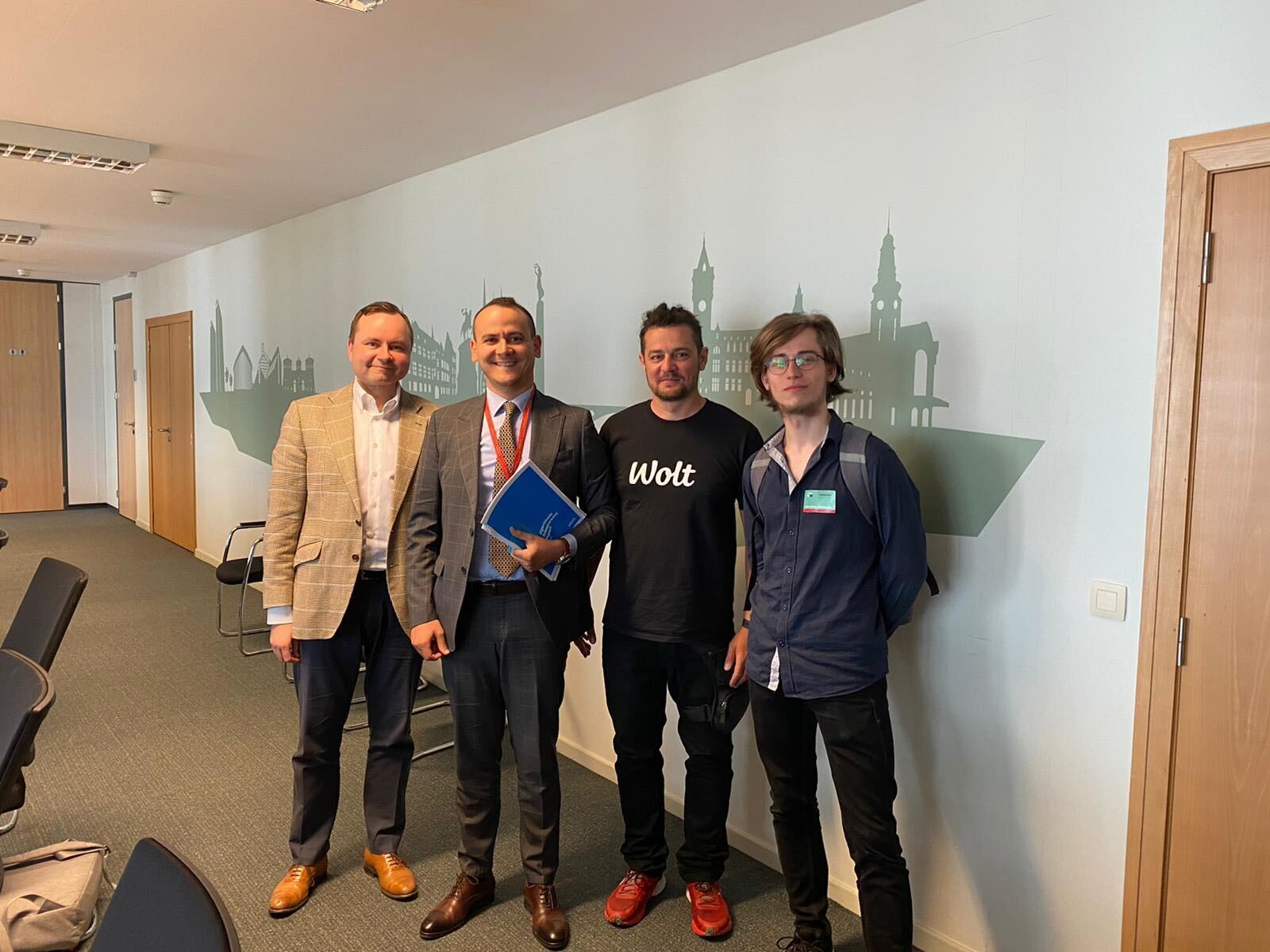Couriers making their voices heard by EU policymakers

Platform work and what kind of rules should be applied to it are being discussed around the world. Yet, those directly impacted – in our case independent courier partners – don’t often have a voice in those discussions. Wolt wants to work for a better understanding of what it means to operate as an independent delivery courier, why couriers have chosen to do what they do, and how they use platforms such as ours. This week, we invited courier partners from six European countries to Europe’s legislative capital – Brussels – to talk directly with policymakers. It’s essential that the future of platform work is formulated with the couriers’ voices too.
Every week hundreds of thousands of people work in European cities as self-employed couriers on local delivery platforms. For some, this is their main source of income, but for the vast majority working it is an additional job. What is interesting, is that also those working more akin to full time say they appreciate the flexibility and the ability to be their own boss, sometimes working fewer hours on a given day or taking a break once they have reached their financial goals. And it is not only the flexibility that draws people into this but also the earning opportunity, as you can read below from the examples of Wolt courier partners. In Wolt’s self-employed courier model, courier partners can freely decide when, where, and how they want to perform a delivery service for us. This flexibility is highly important for the couriers and guides our thinking on platform work.
Listen to the platform workers
In December last year, the European Commission proposed a new directive to regulate such platform work. At Wolt, we believe that this is the right move forward, provided that it improves the legal clarity for all parties and provides better protections for genuinely self-employed workers, while preserving their flexibility and freedom. However, this directive concerns the platform workers, and what’s most important is naturally what the couriers themselves think about it.
Therefore, we invited courier partners from Denmark, Estonia, Finland, Greece, Poland, and Slovakia to Brussels to talk directly with policymakers from the European Parliament, the European Commission, and Member State governments.
“I appreciated the opportunity to meet Wolt couriers working in different Member States including my own country – Slovakia. It was interesting to see the various ways in which these currently self-employed people can use the flexibility of their status – to earn their living while studying at an university, or at home taking care of their children or relatives or even to earn their living while building up their own business. And this is all thanks to the ability to be their own boss. Of course it is important that we as policymakers make sure that no one’s misused at the labour market. It is also our goal to guarantee improvement of of the social benefits where possible. But we should also guarantee that we don’t restrict people’s freedom and flexibility where it brings benefits to all parties. Otherwise we risk to kill the mere potential of the platform business.”
– MEP Miriam Lexmann (EPP, Slovakia)

Meet the courier partners
Marek, Slovakia
For Marek it is essential that platform work maintains the flexibility of being able to work on multiple platforms at the same time. He runs his own laundry business alongside delivering for Wolt as a courier partner. The flexibility of choosing when to go on- and offline, and being able to work on other platforms makes this possible. Something he would have to give up if forced into an employment-type relationship with pre-booked shifts and inability to deny tasks. “Without the flexibility of deciding when to go on- and offline, I wouldn’t be able to run my business on the side”.
Kristian, Denmark
As a freelance journalist and documentarian, there are sometimes periods where there are no assignments for Kristian. That’s why he started doing deliveries for Wolt. He uses the courier app in between jobs in order to secure a stable income. “Working as a part time Wolt courier is an amazing tool for me to keep a steady and reliable income when I’m in between contracts as a freelance tv-producer”. And Kristian is good at making money as a courier. “I am adding a substantial portion every month as pension savings, which is something I have not been good at during my working life as a freelancer”.

Ebenezer, Finland
Ebenezer came to Finland from Nigeria two years ago. He was looking for a job where he could be his own boss and started delivering for Wolt. “A friend told me about the job and I was attracted to it by the fact that you are independent”. For Ebenezer it is important to also make sure that self-employed people can enjoy social protections, but not at the expense of flexibility. “We need to marry social protections with the freedom and flexibility that comes with platform work”, adds Ebenezer.
Georgios, Greece
For 3 years Georgios has been delivering for Wolt in Greece. As a father with two small children, the flexibility of being able to freely choose when and how much to work is essential for being able to help out at home when needed. “I became a courier partner because of the flexibility, the good earnings and because I am my own boss”.
Aile, Estonia
Aile, a student from Estonia, does deliveries for Wolt as a way to earn extra income. When she is not attending lectures or working on her thesis, she is able to spontaneously log on to the Wolt courier app to complete a couple of delivery tasks.
Paolo, Poland
For Paolo, delivering as a courier partner is the second job he’s had. The previous one was menial, repetitive and boring, as a courier partner he can combine earning money with his passion for biking. “If I wake up one morning wanting to go to the mountains for a week I do so. At my previous job, that would have been very hard, if not impossible.”





